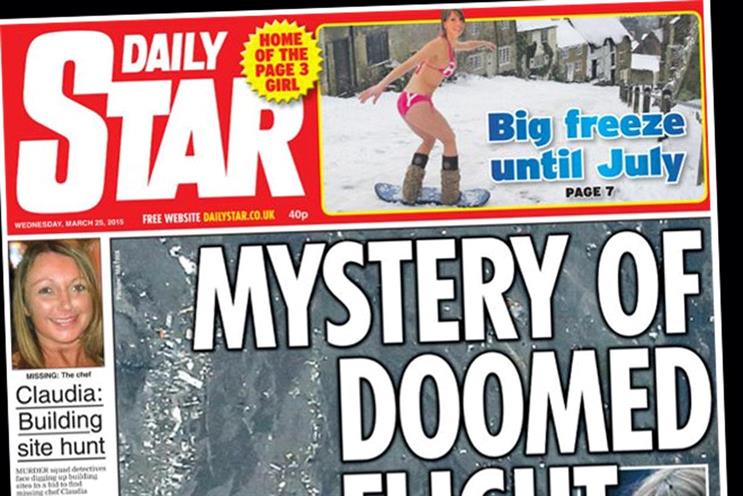Last week it was announced that Trinity Mirror is in talks to acquire Northern & Shell, which owns titles including the Daily Express and the Daily Star, heralding the consolidation of traditional media.
The move comes as a strategic masterstroke in a climate that is becomingly increasingly more challenging for traditional media to keep its head above water.
Earlier this year saw the disintegration of Project Arena, which despite trying to attract attention and intrigue by changing its name a few times, ultimately failed to get major news brands to collaborate on an advertising offering.
With the major players all choosing to focus on their own commercial offering and refusing to play nice, Trinity Mirror has decided to act and pull some of the most recognisable newspapers in the UK together, strengthening its position in the market with a decisive move after months of publisher blathering over Project Rio/Juno/Arena.
The move to acquire Northern and Shell could create huge digital scale for the new group – if it goes through. It is interesting to note the deviation in strategy from the News UK approach when in 2016 it acquired Wireless Group – who seemingly has an intention to cross sell radio, print and digital.
I’m not sitting here telling you that newspapers are performing strongly – we all know that they are struggling to pull in revenue from advertising – but what they do still offer is reach and consumer trust. Advertisers cannot downplay the level of engagement these news brands have with their audiences; we would feel the loss if we were ever to lose them.
This is all down to the fact that they have effectively digitalised. According to NRS Padd April 2016 figures, from April 2016 to March 2017, 9.9 million Brits read newspapers on their mobiles or tablets, whilst 7.9 million read print newspapers. Mobile readership eclipses print readership across the board, with some seeing a particularly dramatic change. The Guardian, for instance, has experienced a 500% increase in readership on mobile.
Trinity Mirror has a long heritage of speaking to both national and local audiences. The Express and the Star are both household names, with loyal and engaged audiences. With The Express and Mirror being political polar opposites, the acquisition will see Trinity Mirror cover both sides of the political spectrum – meaning advertisers can now reach a truly diverse range of people.
Trinity Mirror will have to ensure it maintains the identity of each news brand in order to uphold the strong connections with its readership, and to ensure the highest possible value for brands. This may be its greatest challenge with editorial and production efficiencies surely high on the agenda.
The UK would be a very different place if newspapers disappeared overnight, starving consumers of investigative journalism and quality feature writing, whether it’s in print or online. While news brands are unable to join hands and strengthen the media, we cannot deny that the value of publisher content is still enormous for brands.
Trinity Mirror has taken a real step towards saving an industry that is searching for solutions. After a series of floundering attempts to work out news brands differences, it seems that takeover is the only legitimate option left if newspapers are to consolidate ad revenue. Let’s hope Trinity Mirror gets it right.
Graham Martin is head of publishing at Total Media


